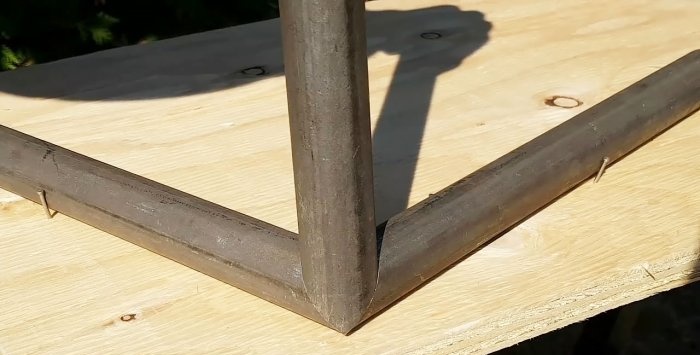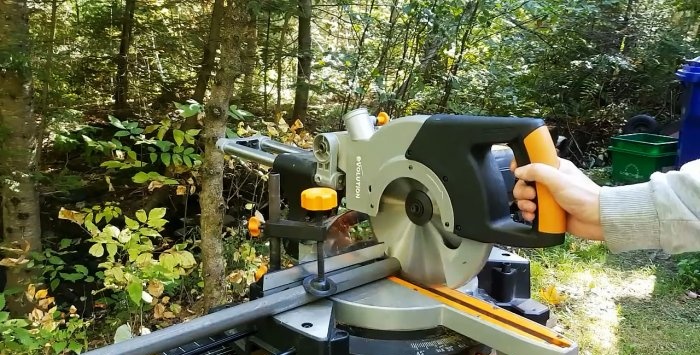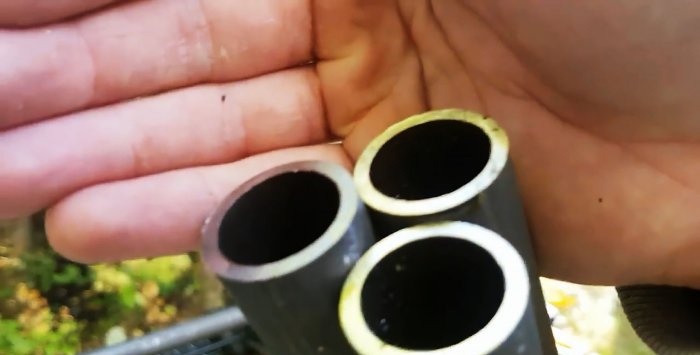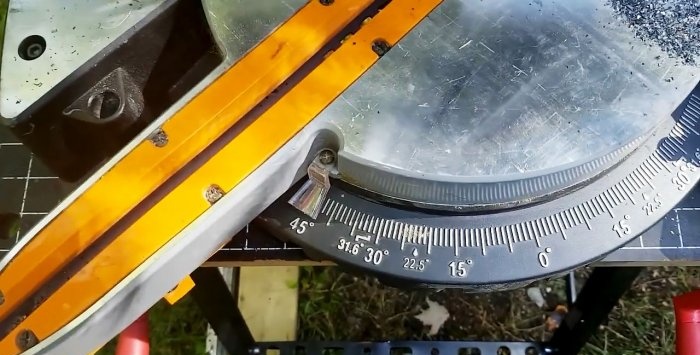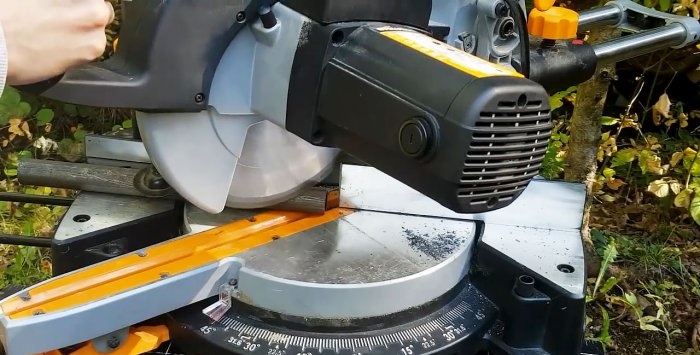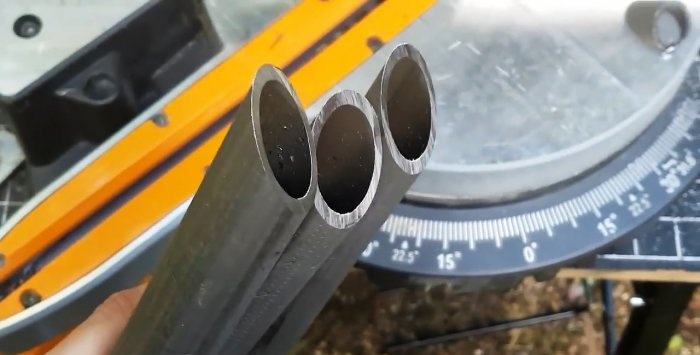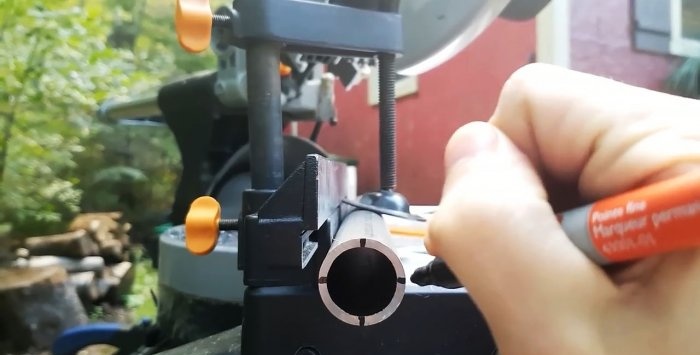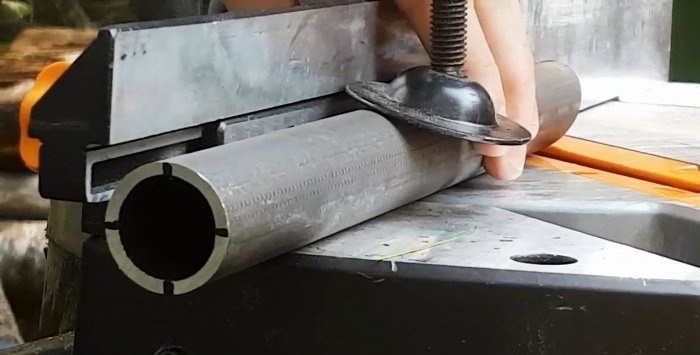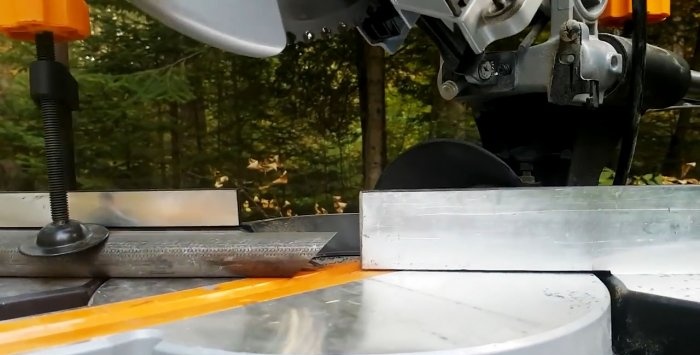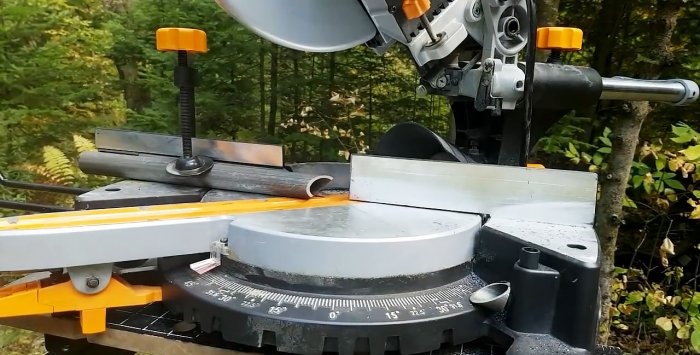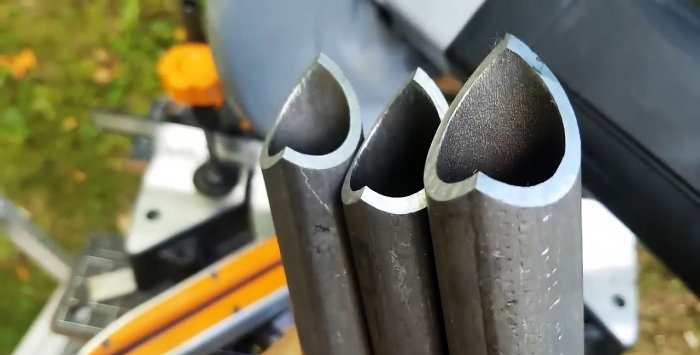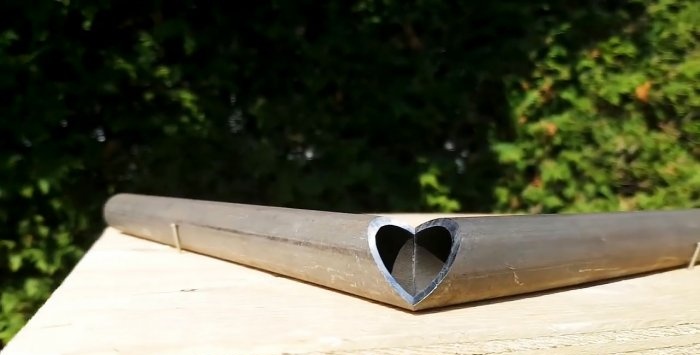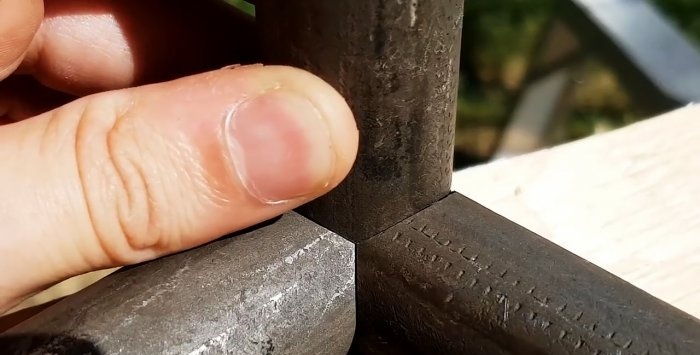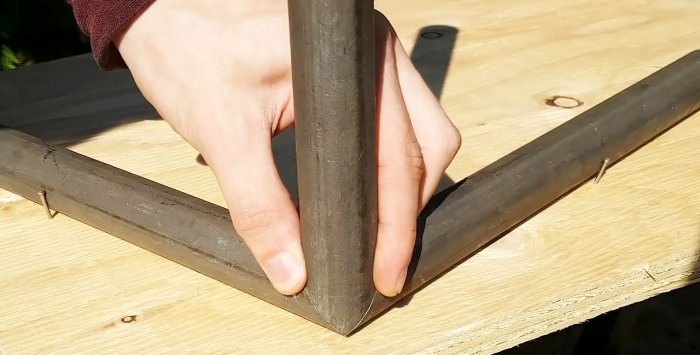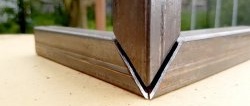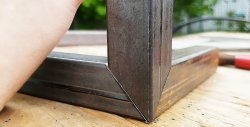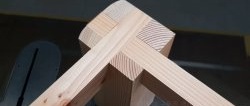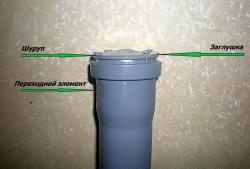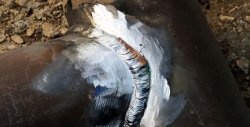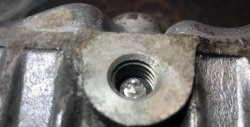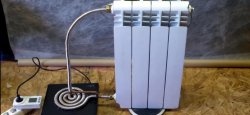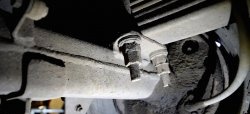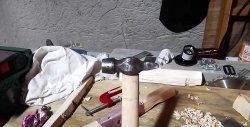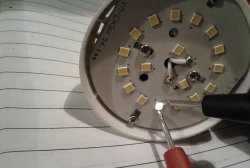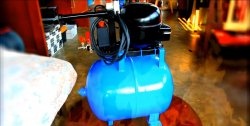How to make a double corner joint on round pipes
This type of connection has an inherent aesthetic appeal. Therefore, it is mainly used in designs in which stylistic sophistication is most important. There are other connection methods to ensure strength, but of course their external design is not as beautiful.
Let's consider this connection method using round pipes as an example. For successful work, we need to stock up on the following tools and materials in advance:
This work does not require any special skills, but all operations and, first of all, marking and measuring operations must be performed accurately and accurately.
1. Place the pipe on the table of the pendulum saw, measure the required length with a tape measure, put a mark with a marker, clamp the workpiece with a clamp and saw off the first section of the pipe.We repeat this operation twice more and get three pipe blanks with a diameter of 75 mm and a length of 300 mm. In other cases, the dimensions can be arbitrary.
2. Rotate the pendulum saw table 45 degrees and fix it in this position.
3. We alternately fix each of the three sections of pipe on the pendulum saw table with a fixed rotation and make a cut at one end that will be exactly 45 degrees.
4. Without changing the position of the pipe blanks after the first cut, mentally draw vertical and horizontal diameters at the ends, marking their intersection with the pipe body with strokes using a marker.
5. We loosen the fastening of the pipe on the table of the pendulum saw and, without changing the longitudinal position, rotate it 1/4 of a circle or 90 degrees clockwise and fasten the workpiece again, checking that there is no longitudinal displacement using a flat metal plate.
6. We make another cut at the end with the cut already made. The result is an intricate configuration - the result of the interaction of the flat disk of the pendulum saw and the cylindrical surface of the pipe. We subject all three pipe blanks to this operation.
7. Place two workpieces on a horizontal surface with the cuts facing each other and bring them closer together until they touch along the required line. If the markings were correct and the cuts were made with high quality, then the workpieces form a flat angle, exactly equal to 90 degrees.
8. Without changing the position of the pipe blanks, we “grab” them from the inside using electric or gas welding, thereby fixing them relative to each other.
9. All that remains is to place a third element vertically on top at the junction of two horizontally located pipes.If its marking and cutting were carried out accurately, then the upper workpiece with all its end points will exactly coincide with the place intended for it.
To avoid injuries and damage, it is necessary to use personal protective equipment: gloves and a welding helmet.
Will need
Let's consider this connection method using round pipes as an example. For successful work, we need to stock up on the following tools and materials in advance:
- a piece of pipe with a diameter of 75 mm and a length of at least 1000 mm;
- pendulum saw with rotary table;
- removable clamp;
- tape measure with measuring tape;
- marker and metal plate;
- electric or gas welding machine;
- flat horizontal surface.
Procedure for performing a double corner connection
This work does not require any special skills, but all operations and, first of all, marking and measuring operations must be performed accurately and accurately.
1. Place the pipe on the table of the pendulum saw, measure the required length with a tape measure, put a mark with a marker, clamp the workpiece with a clamp and saw off the first section of the pipe.We repeat this operation twice more and get three pipe blanks with a diameter of 75 mm and a length of 300 mm. In other cases, the dimensions can be arbitrary.
2. Rotate the pendulum saw table 45 degrees and fix it in this position.
3. We alternately fix each of the three sections of pipe on the pendulum saw table with a fixed rotation and make a cut at one end that will be exactly 45 degrees.
4. Without changing the position of the pipe blanks after the first cut, mentally draw vertical and horizontal diameters at the ends, marking their intersection with the pipe body with strokes using a marker.
5. We loosen the fastening of the pipe on the table of the pendulum saw and, without changing the longitudinal position, rotate it 1/4 of a circle or 90 degrees clockwise and fasten the workpiece again, checking that there is no longitudinal displacement using a flat metal plate.
6. We make another cut at the end with the cut already made. The result is an intricate configuration - the result of the interaction of the flat disk of the pendulum saw and the cylindrical surface of the pipe. We subject all three pipe blanks to this operation.
7. Place two workpieces on a horizontal surface with the cuts facing each other and bring them closer together until they touch along the required line. If the markings were correct and the cuts were made with high quality, then the workpieces form a flat angle, exactly equal to 90 degrees.
8. Without changing the position of the pipe blanks, we “grab” them from the inside using electric or gas welding, thereby fixing them relative to each other.
9. All that remains is to place a third element vertically on top at the junction of two horizontally located pipes.If its marking and cutting were carried out accurately, then the upper workpiece with all its end points will exactly coincide with the place intended for it.
… and in the end
To avoid injuries and damage, it is necessary to use personal protective equipment: gloves and a welding helmet.
Watch the video
Similar master classes
Particularly interesting
Comments (0)

